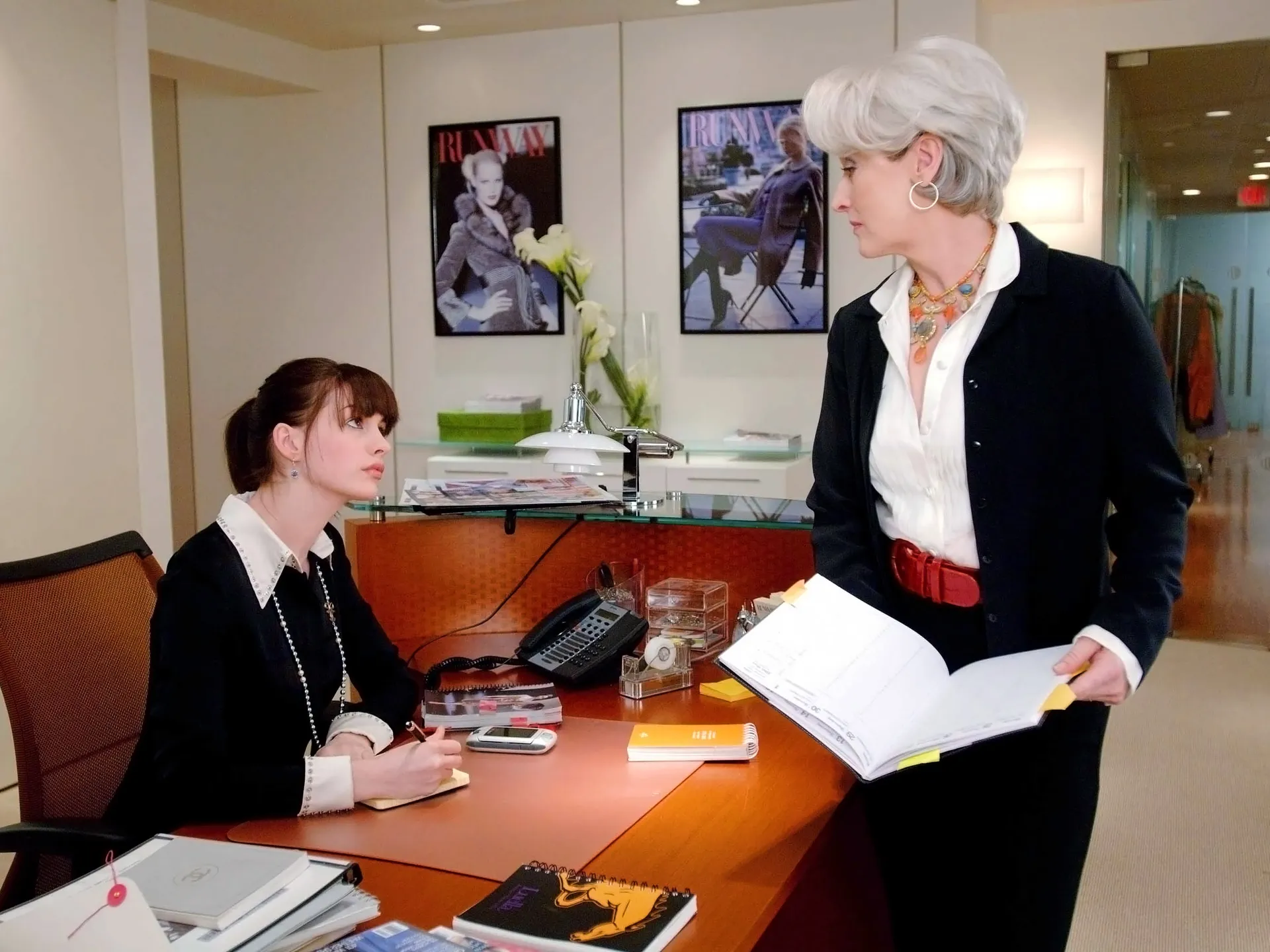As a Sequel to ‘The Devil Wears Prada’ Looms, What Does a Good Movie About the Magazine Business Actually Look Like?
By Emma Specter
Jul 09, 2024 04:00 PM
It’s a notably rough time to work in Hollywood—that is, apparently, unless you’re an executive tasked with rebooting once-successful movies and TV shows. For those types, business is booming: Practically every piece of pop-culture-defining media from the aughts has been resurrected recently, from Gilmore Girls to Sex and the City to The L Word . So, maybe it’s only natural that a sequel to a little 2006 film by the name of The Devil Wears Prada is reportedly in the works at Disney.
The plot will allegedly follow Meryl Streep’s Miranda Priestly, legendary editor of Runway magazine, as she “navigates her career amid the decline of traditional magazine publishing and faces off against Blunt’s character, now a high-powered executive for a luxury group with advertising dollars that Priestly desperately needs.” Hmm, a movie about how there’s no money left in digital or print media? Sounds like something I can really escape into!
As much as I’ve enjoyed my many hungover Sunday-morning rewatches of The Devil Wears Prada over the years, I have to admit that I don’t see a lot of my experience at Vogue —or any other women’s media publication I’ve worked for—reflected in it. Mostly, this is a very good thing, although I’m not going to lie: I wish the notion of just “popping into the closet” and coming out with Manolos in every color of the rainbow were real. (Don’t cry for me, though; I haven’t paid for candles in five years.)
However, I still take solace in the few movies and TV shows that do capture at least part of the fashion-girlie experience. If the powers that be at Disney know that’s good for them, they’ll revisit these and take note:
I do less romantic stunt journalism than I’d like to but I do have to admit that the rom-com’s portrayal of the female-dominated media as a soft warm womb for gay and lesbians to express their most imaginative ideas is a good one (if it isn’t necessarily in the’90s). I am a huge fan of eating salads and chatting with my coworkers about breakups is there anything I can say?
One thing I love about this show is the fact that it is committed to documenting the huge quantity of sex toys for free that health and wellness professionals receive. The other highlights are the story of The main character Jane and her friends having the clothes closet to themselves to host emergency meetings (you are aware that they’re not the only ones who dislike the idea) along with the publisher they are working on randomly switching hands between “Steinem” to “Safford” in the second season and no one ever acknowledges the change. Do we live in a world the where Gloria Steinem owned a media empire? Did she ever get dismissed in this one?
Imagine if I walked into the Vogue pitching meeting and completely altered what the magazine’s content was, just as the main character Jenna Rink does at Poise–seemingly in a spur of the moment, without regard to the demographics of the audience or how the change will affect her staff which, in most cases, had signed up to work for an adult women’s magazine, and not a yearbook for middle schoolers. I’m not a fan and yet this plot point has always irked me! The scene in which everyone is having fun at the fashion show is always a hit, as according to my experience, fashion-conscious people like to party, particularly when there are cocktails or passing apps.
Hannah Horvath’s joy unbridled when she learns the fact that her Conde Nast advertorial job includes an abundance of free food items (including lox! I could weep!) could be the most realistic representation I’ve ever witnessed of digital journalism post the eras.
In the words of Carrie Bradshaw (and myself after every cafeteria holiday gathering), “I’m drunk at Vogue!”
